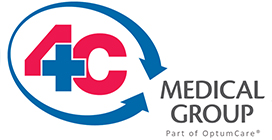**This is a synopsis of an article published in Stat News.
According to a 2014 report by the federal Consumer Financial Protection Bureau, 43 million Americans have medical debt in collections, averaging $579 (average non-medical debt is $1,000). For 15 million of those Americans, medical debt is the only source of debt on their credit reports.
However, medical debt reporting is about to change, thanks to a 2015 settlement negotiated by New York Attorney General Eric Schneiderman and the three credit reporting agencies (Experian, Equifax and TransUnion), followed by an agreement between the three credit bureaus and 31 state attorney generals.
On September 15, 2017, new credit reporting guidelines will be instituted nationwide. The three credit bureaus will implement a 180-day waiting period before listing medical debt on a consumer’s credit report. The new six-month grace period will offer enough time to resolve delayed payments and disputes with insurance companies and remove medical debt from a credit report once it is paid by an insurer.
Currently, hospitals and doctors’ offices will liaison with collection agencies initially, rather than attempting to collect past-due medical bills privately.
“The 180-day waiting period is a big step forward toward a more equitable process…Without a standardized process, some bills get sent to collections because they’re 30 or 60 days past due as opposed to six months,” said Julie Kalkowski, executive director of the Financial Hope Collaborative at Creighton University in Omaha, Neb., which provides financial education and coaching to low-income, single mothers.
High-deductible health plans increase out-of-pocket responsibilities, which causes people who would otherwise have good credit scores, left saddled with debt.
To adjust for rising medical debts, FICO and VantageScore (the two main credit-scoring companies) have created models that differentiate between medical and non-medical debt.
Ethan Dorhelm, vice president of scores and analytics at FICO says, “Those with medical accounts are less likely to default on their accounts than non-medical accounts.” Despite the credit-scoring companies’ adjustments, many banks and other lenders haven’t adopted the newer credit-scoring models. Unfortunately, in many cases, peoples’ credit scores remain adversely affected.
Sarah Davies, senior vice president at VantageScore Solutions is optimitstic about the change: “If there’s medical debt that’s been paid, it should be removed going forward, and if it’s less than six months old, find out when it’s going to be removed.”
Read the full article here.
About 4C Medical Group
 4C Medical Group is a primary care driven integrated healthcare delivery network in the Phoenix, Arizona market. Our network provides care to patients in acute, post-acute, specialty care, wellness, medicare advantage, and virtual appointments.
4C Medical Group is a primary care driven integrated healthcare delivery network in the Phoenix, Arizona market. Our network provides care to patients in acute, post-acute, specialty care, wellness, medicare advantage, and virtual appointments.
With over 12 locations throughout Phoenix, our patients can easily find a location near them. Discover more about 4C Medical Group and our network of physicians.
Comments are closed.



